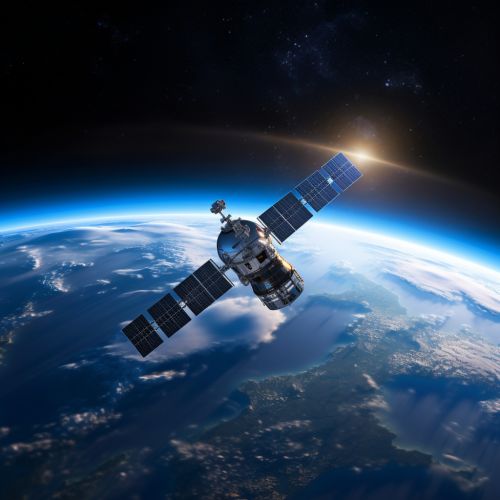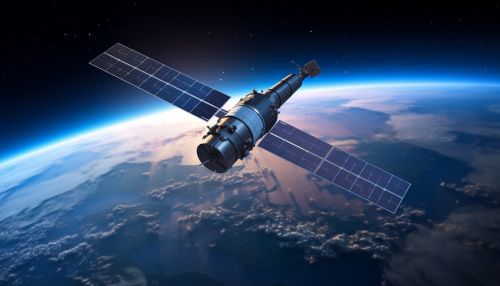Space Age
Introduction
The Space Age is a period in human history characterized by the ongoing exploration and utilization of outer space. The Space Age began with the launch of the Sputnik 1 satellite by the Soviet Union on October 4, 1957. This event marked the beginning of a new era in scientific discovery and technological advancement, with significant implications for society, politics, and culture.


Historical Context
The Space Age emerged during the Cold War, a period of geopolitical tension between the United States and the Soviet Union. The competition between these two superpowers extended into space, resulting in a 'Space Race' that drove significant advancements in space technology.
Key Events
Sputnik 1
The launch of Sputnik 1, the first artificial satellite, marked the beginning of the Space Age. This event demonstrated the feasibility of launching objects into space and ignited a global interest in space exploration.
Human Spaceflight
The first human spaceflight was achieved by the Soviet Union in 1961, when Yuri Gagarin orbited the Earth in the Vostok 1 spacecraft. This milestone was followed by the United States' Project Mercury, which aimed to achieve human spaceflight and did so successfully in 1962 with astronaut John Glenn.
Moon Landing
The most significant event of the Space Age was the Apollo 11 mission in 1969, when astronauts Neil Armstrong and Buzz Aldrin became the first humans to set foot on the Moon. This achievement marked a major victory for the United States in the Space Race and remains one of the most iconic moments in human history.
Impact and Significance
The Space Age has had profound impacts on various aspects of human life. It has led to advancements in technology, contributed to our understanding of the universe, and shaped global politics and culture.
Technological Advancements
The Space Age has driven significant advancements in technology. The development of rocket technology, for example, has not only enabled space exploration but also contributed to advancements in various other fields, such as telecommunications, weather forecasting, and defense.
Scientific Discovery
Space exploration has greatly expanded our knowledge of the universe. It has led to the discovery of new celestial bodies, provided insights into the origins of the universe, and challenged our understanding of physical laws.
Cultural Impact
The Space Age has also had a profound impact on culture, influencing art, literature, and popular culture. The idea of space exploration has inspired countless works of science fiction and has shaped our visions of the future.
Current State and Future Prospects
Today, the Space Age continues to evolve. The focus of space exploration has shifted from competition between nations to collaboration, with international partnerships such as the International Space Station (ISS). Private companies like SpaceX and Blue Origin are also playing an increasingly important role in space exploration, with plans for commercial space travel and colonization of other planets.
The future of the Space Age holds exciting possibilities. With advancements in technology and growing interest in space exploration, we may soon witness humans setting foot on Mars, the discovery of extraterrestrial life, and perhaps even the colonization of other planets.
